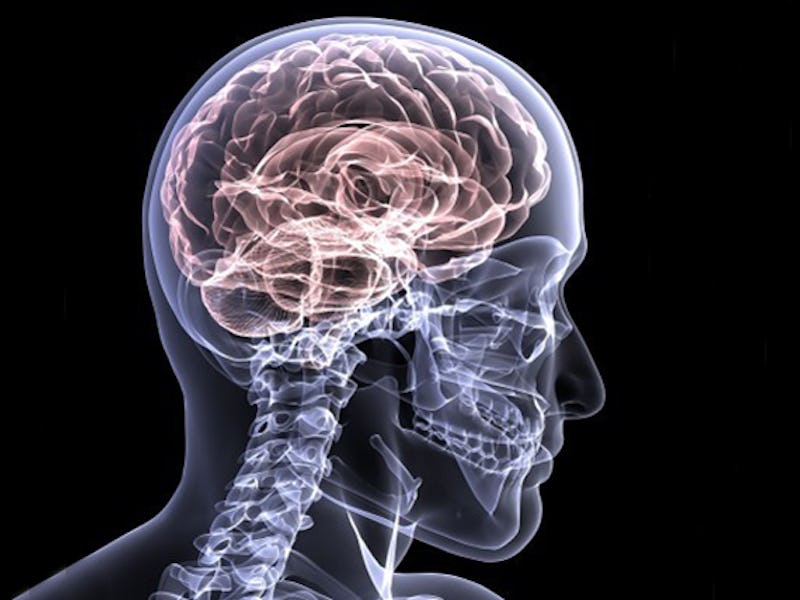Scientists Successfully Dulled Traumatic Memories Using an Anesthetic
A proof-of-concept study may be a game-changing PTSD treatment.

The way we experience the present is largely influenced by our memories of the past. Some memories help us navigate the world around us, while others can make life more difficult and uncomfortable. Intrusive, pathological memories contribute to anxiety disorders like post-traumatic stress disorder, a trauma-triggered condition that affects nearly 8 million Americans. On Wednesday, researchers in Science Advances described a unique new way of short-circuiting the underlying process.
Scientists have long believed that memories are fixed, and this assumption has been an obstacle in the development of treatments for traumatic memories. However, the new study shows that reactivating an old memory can put it in an unstable state — and once it’s in that state, it’s susceptible to manipulation.
This manipulation took the form of the anesthetic propofol. The team behind the study discovered that people who receive a dose of propofol after a negative memory is reactivated have difficulty retrieving that memory 24 hours later. While this study is an early exploration into this process, the results suggest that memory reactivation, when combined with a routine anesthetic procedure, could be an effective, noninvasive approach to alleviating traumatic memories.
The study involved 50 healthy study participants recruited from the Hospital Clínico San Carlos in Madrid, each of whom participated in this study before going a pre-planned endoscopy. Instead of exposing healthy participants to anesthesia they didn’t need, the team decided to conduct the study on people who needed to take propofol anyway.
A shot of an anesthetic during memory reconsolidation could help people who suffer from PTSD.
Theyused propofol because previous studies have demonstrated that it blocks emotional memory encoding and retrieval. Electroconvulsive therapy (ECT), a medical treatment used for patients with severe major depression, also uses an anesthetic while a patient undergoes a brief electrical stimulation of the brain.
The authors of the new study questioned whether the role that the anesthetic plays in ECT was more significant than previously suspected. ECT is known to disrupt emotional memory reconsolidating — the process in which memory becomes malleable for 24 hours after it’s been remembered. It’s possible, however, that reconsolidation was actually linked to the anesthetic.
To test this idea, participant went through an “emotional memory encoding” process. They watched slideshows of two three-part stories that conjured up negative emotions. The first and third parts of the story were emotionally neutral, while the second part was negative. The idea was that the second part would ignite the memories they wanted to get rid of.
One week after the encoding session, all participants watched the first slide of the two stories and reported what they remembered about the other slides. Immediately after the memory reactivation, they received a dose of propofol and underwent the endoscopy procedure they had planned. Because sedation depends on weight, age, and clinical condition of a patient, the prescribed propofol doses were individualized to each participant.
A bottle of propofol.
One group was asked about what memories they had of the slideshow immediately after they were discharged from the recovery room, while the other group was asked 24 hours later. The scientists discovered that those tested immediately could remember each part of the stories they were shown. However, the people tested 24 hours later had immense difficulty remembering the negative, emotional middles of the slideshows — even though they could still remember the neutral beginnings and ends.
The scientists say this suggests propofol causes emotional aspects of memories to lose their resonance during the memory reconsolidating process. They speculate that amygdala activity is “highly sensitive to the inhibitory effects of anesthesia,” and that the effects on patients may be a result of propofol inhibiting the amygdala and the hippocampus, as well as the connection between these two brain regions.
Further testing is needed to know whether these memories return after 24 hours. It’s also questionable whether the emotional memories encoded during truly stressful life experiences root in the brain in the same way that the memories in this study did. What’s shown here is a proof of concept, though, one that merits further investigation.
Abstract:
The adjustment of maladaptive thoughts and behaviors associated with emotional memories is central to treating psychiatric disorders. Recent research, predominantly with laboratory animals, indicates that memories can become temporarily sensitive to modification following reactivation, before undergoing reconsolidation. A method to selectively impair reconsolidation of specific emotional or traumatic memories in humans could translate to an effective treatment for conditions such as post-traumatic stress disorder. We tested whether deep sedation could impair emotional memory reconsolidation in 50 human participants. Administering the intravenous anesthetic propofol following memory reactivation disrupted memory for the reactivated, but not for a non-reactivated, slideshow story. Propofol impaired memory for the reactivated story after 24 hours, but not immediately after propofol recovery. Critically, memory impairment occurred selectively for the emotionally negative phase of the reactivated story. One dose of propofol following memory reactivation selectively impaired subsequent emotional episodic memory retrieval in a time-dependent manner, consistent with reconsolidation impairment.